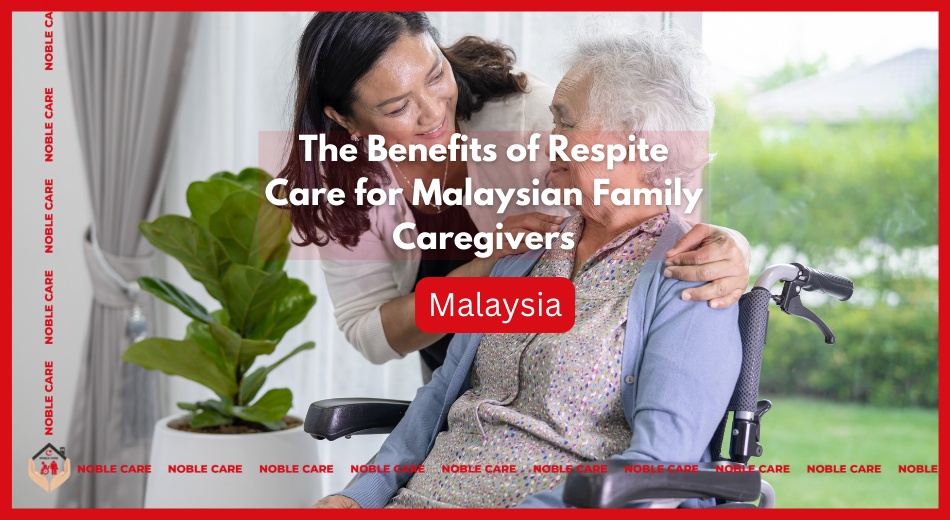Caring for a loved one is a rewarding yet challenging responsibility. Family caregivers in Malaysia often find themselves balancing the demands of caregiving with their own personal and professional lives. Respite care offers a vital solution, providing much-needed relief and support for these dedicated individuals. In this article, we will explore the benefits of respite care for Malaysian family caregivers and discuss how to access these essential services.
Understanding Respite Care
Respite care is a temporary relief for primary caregivers, offering them a chance to rest and recharge while their loved one receives professional care. This type of care can be provided in various settings, including at home, in a nursing home, or at specialized respite care facilities. The duration of respite care can vary from a few hours to several days or weeks, depending on the needs of the caregiver and the care recipient.
Relief and Support for Family Caregivers
1. Reducing Stress and Burnout:
One of the most significant benefits of respite care is the reduction of stress and burnout among family caregivers. Providing constant care can be physically and emotionally exhausting, leading to caregiver burnout. Respite care allows caregivers to take a break, ensuring they have time to rest and rejuvenate. This not only benefits the caregiver’s well-being but also improves the quality of care they can provide to their loved ones.
2. Enhancing Mental and Physical Health:
Caregiving can take a toll on a person’s health. The continuous demands and responsibilities often leave caregivers with little time to focus on their own physical and mental health. Respite care provides an opportunity for caregivers to attend to their own medical appointments, engage in physical activities, and pursue hobbies and interests that promote mental well-being. By prioritizing their health, caregivers can maintain their stamina and resilience over the long term.
3. Strengthening Family Relationships:
The stress of caregiving can strain family relationships. By utilizing respite care, caregivers can spend quality time with other family members, ensuring that their relationships remain strong and supportive. This break can also provide an opportunity for family members to come together and share caregiving responsibilities, fostering a sense of teamwork and unity.
4. Improving Care Quality:
When caregivers are well-rested and less stressed, they are better equipped to provide high-quality care. Respite care ensures that the primary caregiver can return to their role with renewed energy and focus, benefiting the care recipient. Additionally, professional caregivers can offer a fresh perspective and expertise, potentially introducing new strategies and techniques to improve the overall care plan.
Accessing Respite Care Services in Malaysia
Finding and accessing respite care services in Malaysia is relatively straightforward, with several options available to suit different needs and preferences.
1. Home-Based Respite Care:
Home-based respite care services involve a professional caregiver coming to the family’s home to take over the caregiving responsibilities temporarily. This option is ideal for those who prefer their loved one to remain in a familiar environment. Many agencies in Malaysia offer trained professionals who can provide high-quality care tailored to the individual’s needs.
2. Nursing Homes and Respite Care Facilities:
Many nursing homes in Malaysia, including those in Kuala Lumpur (KL), offer respite care services. These facilities provide a safe and supportive environment where the care recipient can receive professional care while the primary caregiver takes a break. Utilizing respite care services in a nursing home in KL can be an excellent option for those needing a more extended period of relief or who require specialized care that is difficult to manage at home.
3. Community-Based Programs:
Several community-based programs and organizations in Malaysia offer respite care services. These programs often provide day care centers or short-term residential care facilities where individuals can receive care and engage in social activities. These programs are designed to support caregivers by offering flexible and accessible respite care options.
4. Government and Non-Profit Support:
The Malaysian government and various non-profit organizations also provide support and resources for family caregivers. Programs and subsidies are available to help offset the cost of respite care, making it more accessible for families in need. Caregivers can reach out to local health departments or non-profit organizations to learn more about the available resources and support.
Conclusion
Respite care is a crucial support system for family caregivers in Malaysia, offering them the relief and assistance they need to continue providing high-quality care to their loved ones. By reducing stress, enhancing health, and strengthening family relationships, respite care ensures that caregivers can maintain their well-being while fulfilling their caregiving responsibilities.
Accessing respite care services is straightforward, with options ranging from home-based care to specialized facilities and community programs. Utilizing these services not only benefits the caregivers but also improves the overall care experience for their loved ones. For those seeking respite care, exploring reputable providers like Noble Care can be an excellent start to finding the right support.
If you are a family caregiver in Malaysia, consider incorporating respite care into your routine to ensure you and your loved ones receive the best possible care.

